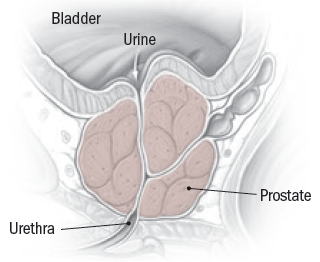
Driving with arthritis pain: Stay comfortable — and safe — behind the wheel

Daily cup of coffee may prevent afib recurrence

Gene-editing therapy lowers harmful blood fats in early study

What is EMDR therapy, and who can it help?

GLP-1 drugs versus bariatric surgery for treating obesity

Two dumbbells, three exercises, and 10 minutes

Easing the emotional burden of IBS

Modify your push-ups to meet your fitness level

What is long QT syndrome?

Stroke survivors may benefit from very low LDL levels
Medications Archive
Articles
CAR-T immunotherapy for prostate cancer?
The specialized cells of our immune systems help to keep us healthy and free of infectious diseases. Immunotherapies teach those same cells to recognize and destroy cancer. Researchers are reporting promising results with a different method that involves engineered cells studded with receptors that bind to specific targets on cancer cells.
Harvard Health Ad Watch: New drug, old song, clever tagline
A new type of nonhormonal medication to prevent hot flashes and night sweats due to menopause, Veozah, was approved by the FDA in 2023. An ad for the drug has useful information, but some key questions are not answered.
Should you really take that daily aspirin?
A 2024 analysis found that many people without heart problems are taking daily low-dose aspirin therapy, even though it might have more health risks than benefits. Some of them have not consulted with a doctor about whether daily aspirin is safe for them.
Choosing erectile dysfunction drugs
There are four main FDA-approved erectile dysfunction (ED) drugs: sildenafil (Viagra), tadalafil (Cialis), vardenafil, and avanafil (Stendra). While all ED drugs work the same way, they differ in how quickly they act (from 15 to 45 minutes) and how long the effect lasts (from six to 36 hours). Which one is the best choice for a man depends on his lifestyle and whether he takes medication that ED drugs may interfere with.
Why does everything taste salty to me?
A variety of factors can make food taste overly salty. These include seasonal or food allergies, medication side effects, gastroesophageal reflux disease (GERD), diabetes, autoimmune conditions, or a chronically dry mouth. People should discuss the problem with their doctor.
Should I take an aspirin if I think I'm having a heart attack?
Contrary to previous recommendations, people who think they are having a heart attack or stroke should not take an aspirin on their own. Their symptoms might be caused by a different problem that might be made worse by taking aspirin.
5 myths about using Suboxone to treat opioid addiction
The medication Suboxone has helped many people who are addicted to opiates, but even within the addiction treatment community there are misunderstandings about this drug and its effects on the brain.
Are you getting health care you don't need?
Just because you can get a particular test or treatment or take a supplement doesn't mean you should. One study suggests as much as 20% of all health care in the US is unneeded. Skipping unnecessary care might actually improve your health, while saving time and money.

Driving with arthritis pain: Stay comfortable — and safe — behind the wheel

Daily cup of coffee may prevent afib recurrence

Gene-editing therapy lowers harmful blood fats in early study

What is EMDR therapy, and who can it help?

GLP-1 drugs versus bariatric surgery for treating obesity

Two dumbbells, three exercises, and 10 minutes

Easing the emotional burden of IBS

Modify your push-ups to meet your fitness level

What is long QT syndrome?

Stroke survivors may benefit from very low LDL levels
Free Healthbeat Signup
Get the latest in health news delivered to your inbox!
Sign Up











